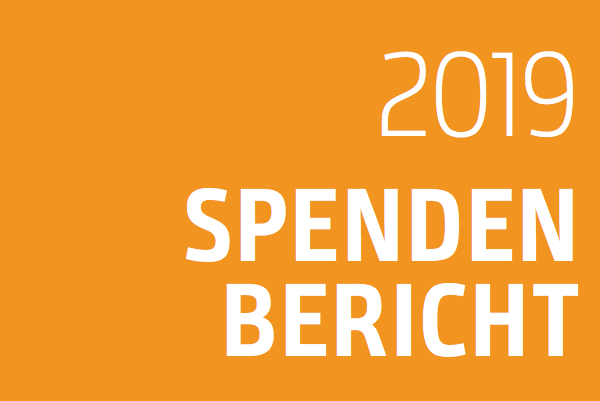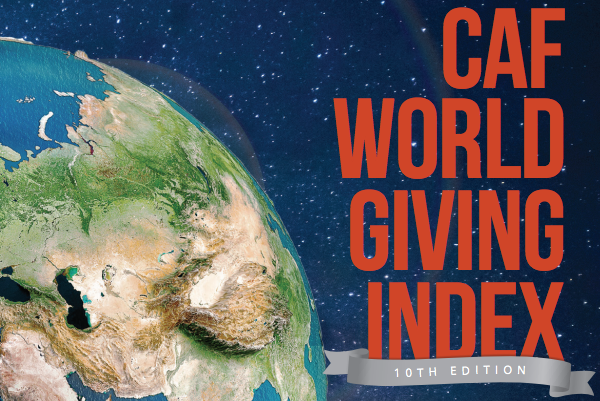
Austrian donors to give all-time high in 2019, report shows
December 4, 2019
ECNL publishes review of global fundraising self-regulation
December 4, 2019Despite a growing culture of charitable giving across many countries, generosity is on a downward trend globally, according to the Charities Aid Foundation (CAF) World Giving Index 10th edition, released in October.
This year’s Index examined aggregate data for each country across 10 years (2009-2018), drawing on surveys in 128 countries in order to capture longer-term trends. Asking if people have helped a stranger, given money or volunteered for a good cause over the past month, the report identifies the 10 most generous countries over the decade of research, along with the 10 least generous. It also lists the biggest risers over the course of the study and those countries that have dropped the most during that time.
From Europe, Ireland, the UK and the Netherlands are all in the top 10, taking fifth, seventh, and eighth place, and scoring 56%, 54% and 53% respectively. In comparison, the United States occupies first place over the last 10 years with an overall score of 58%. Myanmar is in second place and New Zealand in third place.
However, the findings show that the three highest scoring European countries fluctuate more year on year than the other top 10 countries. Over the decade, Ireland peaks at 60% on the World Giving Index in 2012 and 2014 but then reaches its lowest point of 53% in World Giving Index 2017, the same time the UK and the Netherlands also reached their lowest points. Meanwhile the highest scores of 57% were recorded by the UK in World Giving Index 2011, 2013 and 2015. 2015 was also the year when the Netherlands scored its highest Index result of 56%.
Croatia, Montenegro, Bulgaria, Lithuania, Serbia, and Greece, are among the ten lowest performers over the last decade. Greece scores joint lowest with China, with 16%.
Within Europe, Bosnia and Herzegovina saw the biggest rise in giving over the decade, while Poland and the Czech Republic had seen the largest falls, at seven and nine points respectively. In both cases, all three giving behaviours have decreased, particularly donating money.
Beyond Europe
Since the World Giving Index was first produced in 2010, five of the top 10 biggest risers are to be found in Asia, with Indonesia leading the way. It is the only country in the top 10 to have improved its one year scores over recent years, with all of the others on a downwards trajectory.
The only country to feature in the top 10 on all three giving measures over ten years is New Zealand, while China has the lowest overall World Giving Index score and is the only one to feature in the bottom 10 on all three counts.
Donating money
The UK, Netherlands, and Ireland are all in the top ten for donating money. People in the UK are the second most likely in the world to have donated money to charity, at 71% of people, following Myanmar, at 81%.
Overall however, the report identifies a recent downward trend in donations in key countries with long histories of philanthropy and household charitable giving, including the UK, USA, Canada, Ireland and the Netherlands where levels of individual giving are now lower than they were in the aftermath of the financial crisis.
Helping a stranger
Worldwide, more than 2.5 billion people (48.3%) helped a stranger over the past decade, with African countries accounting for seven of the top 10 places where people are most likely to do so. This is the most commonly performed giving behaviour across the world. However, there are no European countries in the top 10.
Volunteering
For volunteering, Ireland is the only European country in the top 10. Sri Lanka has the highest rate of volunteering in the world. Each year an average of around seven million people volunteered their time, nearly half of those aged over 15 in the country.
John Low, Chief Executive of the Charities Aid Foundation, said:
“We are once again reminded of the kindness and generosity of people across the world as they dig deep despite uncertain times and significant geo-political unrest to give their time and money to help others.
“In taking a step back and looking at giving trends over 10 years, we have created what we hope will serve as a roadmap to continue to grow giving in all its forms across the globe. There are areas of concern, but also key moments of hope in parts of the world that have overcome true hardship.
“We know that there is no single solution to success. It is about hard work, shared values and knowing in ourselves the inherent benefit to all of us when we work to improve the lives of our friends and neighbours, and strangers who need our help.”




